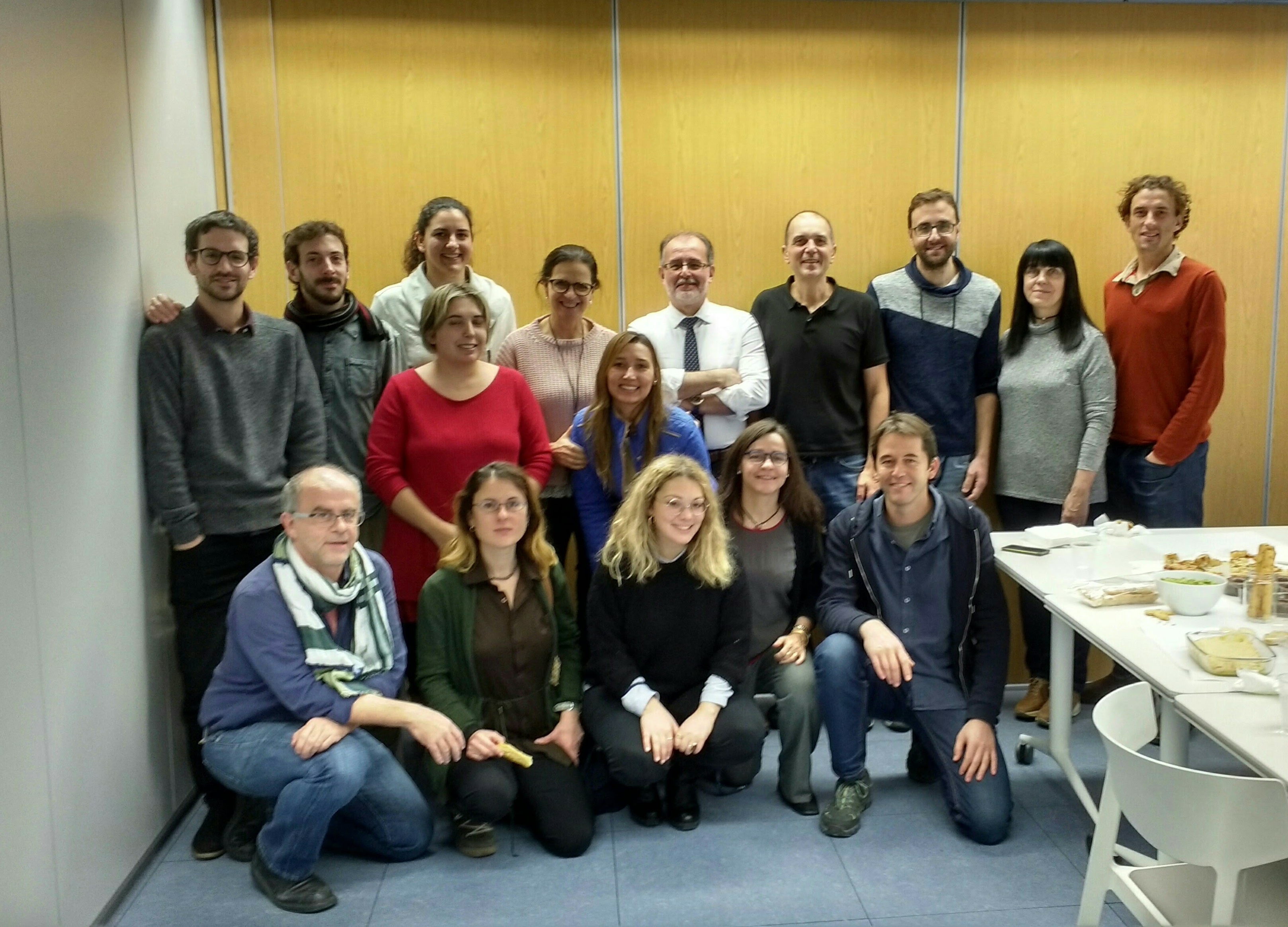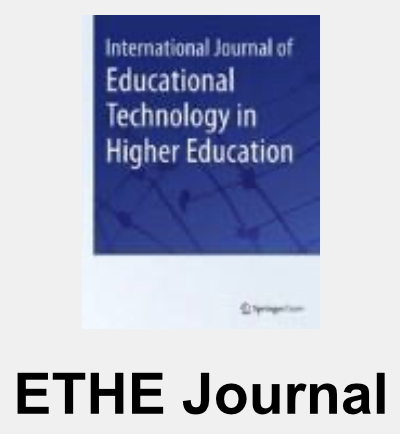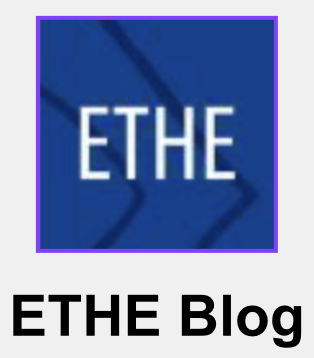How to build fair data cultures in HEIs?
Overcoming the tension between technology and social criticism: closing the Webinar Series “Fair Data Cultures in Higher Education: emerging practices, professionalism and the challenge of social justice”
On December 16, a work chapter related to the Ramón y Cajal UOC project “Professional Learning Ecologies for Digital Scholarship: Modernizing Higher Education by Supporting Professionalism” (Ministry of Innovation and Science of Spain, RyC-2016-19589) closed. This project was open to the UOC community in 2019. A fundamental axis of this project is related to the faculty development connected to the growing digitization of services and activities in the context of the modernization of higher education institutions. This objective had been formulated in 2016 and included an area of digitization that became central to the project: “data-driven” practices or based on data extracted from the digital contexts that the academics go through, due to their teaching or research activity.
The Webinar Series “Data Cultures in Higher Education” (view its presentation here) attempted to complement more formal research activities such as a survey and interviews in relation to how academic educators live by the landscape of the “dataified” university.
The Series is part of the work context of the UNESCO Chair in Education and Technology for social change, led by Albert Sangrà, and the Edul@b research group in Education and ICT, led by Montse Guitert.
The Series aimed to open a space for dialogue, an Agorà to overcome the fragmentation of discourses, practices and data epistemologies observed in the first approach to the field within the RYC project. In fact, it could be observed that we are no longer talking about digital environments and that the change in the academic work environment is moving towards smart technological infrastructures and environments, that is, spaces where there is use of automation based on artificial intelligence integrated into human behavior. These contexts imply an understanding of the phenomenon and fundamentally the position of the scholars to promote a professional practice aimed at both innovation and a well-founded ethical and deontological practice. However, “training” in the most traditional sense of the word is not enough. This is when the RyC project encountered Edul@b’s trajectory on the topic of learning ecologies, which has given rise to the idea that we cannot speak of direct, structured training, but rather of creating environments conducive to cultivating Professional Learning Ecologies for Data Literacy. If we conceive of these environments as complex human ecosystems, we have to speak of institutional, unique and unrepeatable “cultures” that construct itineraries of meaning around participants’ practices, values, ways of living technology.
The hypothesis adopted in the RyC project has been that creative and fair ways of approaching data could arise as part of the consciousness and subjective expression linked to participation in processes of construction of data cultures in HEI, bringing Freirian critical pedagogy closer to the literacies necessary to deal with “dataified” work and life contexts. Likewise, a technologically advanced approach, but at the same time implemented through a participatory design that implies transparency and negotiation of data uses, is a condition sine qua non for a new vision of educational quality in technologically mediated environments, contributing to the vision of the UNESCO 2030 Agenda.
In this sense, within the project some publications catered the initial exploration of the problem in support of the mentioned hypothesis, such as “ Datification and Higher Education: Towards the construction of a framework for teacher data literacy university ”(Raffaghelli, 2020); “Centering complexity in educators data literacy´to support future practices in faculty development” (Raffaghelli & Stewart, 2020); “Is data literacy a catalyst of social justice” (Raffaghelli, 2020b) or the most recent “Supporting the development of critical data literacies in higher education: building blocks for fair data cultures in society”. (Raffaghelli, Manca, Stewart, Prinsloo, Sangrà, 2020).
Nonetheless, we are currently working on the results of a survey portraying university cases around data uses. The interactive visualizations of the cases analyzed can be consulted on the project page dedicated to mapping practices connected to critical data literacy.
Our journey has sought to establish bases for the discussion on institutional practices related to:
- use of student data (particularly through learning analytics);
- areas of data literacy that need to be mainstreamed into digital competence in higher education;
- the connection between open science, open data and data produced in higher education.
Our webinar series engaged voices across the globe, (with experts from Canada, Spain, Italy, United Kingdom, Uruguay, US), as it is the vocation of the UOC. In the end, we turned our gaze towards home, in Catalonia.
Our goal was to work not only global perspectives but also our universities’ strategic positioning in this debate. In fact, the project “Fair Data Cultures” can be placed between advanced proposals in the sector, if we take into account that there is only recent literature(see the Mapping of Practices carried out in the RyC project). We can also grasp that most proposal are emerging in the last five years through projects financed in the US and Europe only since 2015
The last webinar then involved the Series’s coordinating research unit (Albert Sangrà Morer, Montse Guitert Catasús and Juliana Raffaghelli). It aimed to present results of three lines of research that support concepts and ideas to build fair data cultures in the IES:
- Impact of the use of learning analytics in online asynchronous debates in higher education (Montse Guitert Catasús)
- Gathering data for success? Problems in the use of university rankings and the particular situation of online learning (Albert Sangrà Morer)
- The story of two universities: A study covering data practices in two institutions of higher education (Juliana E. Raffaghelli)
In addition, we could count over the generous participation of two luxury discussants , always from the context of Catalan interuniversity networks.
First of all, the Director of the Master in Data Science, with extensive data literacy experience, Teresa Sancho Vinuesa , from the UOC’s Computer Science, Multimedia and Telecommunications Studies). From her studies related to learning analytics within the LAIKA research group, led by herself and her teaching task to train the profiles of data scientists, Teresa’s message made it clear that it is not possible to operate alone expert in data science. It is not an ideal ethical horizon, and the new training frontiers imply a concrete vision of that limitation. However, she also pointed out that there is an ethical limit: whenever a human problem can be solved through the automatisms of a response, or a service, or an analysis, and it is not done because we cannot operate with personal or students’ data.
This brilliant intervention was followed by the critical pedagogical approach to educational technology studies casted out by Pablo Rivera Vargas , Lecturer in Education at the University of Barcelona and member of the ESBRINA group. Pablo’s work throughout 2020 has been intense and exemplary in trying to find approaches to understand and act to face the pandemic and the stressful situation the teachers and families had to go through while using platforms whose data do not seem to have transparent destinations. Pablo highlighted the need to understand how the technostructure reproduces forms of power and particularly the neo-liberal socio-economic model. In this sense, his work aims to raise awareness and find action pathways from schools and universities as nodes in a community network.
In summary, both invited scholars discussed the presentations made by Sangrá, Guitert and Raffaghelli, over the basis of their research. This conversation gave space to a broad perspective on the problems and opportunities they will face in becoming part, increasingly, of a university and a datafied society.
The topic covered by the webinar series, which gradually grows in interest and depth, can be deemed a milestone, a reference space of work which is now proposed as a basis for the continuity of work by other stakeholders.






